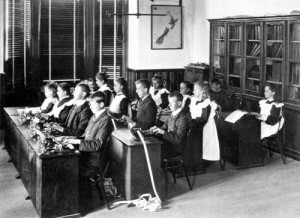Jim Ingram (b.1912): Disability
As has been mentioned throughout previous blogs about Jim Ingram’s memoir, he ‘had been born a cripple and could not walk very well’ (1). It affected relationships with his family, friends and his school work. During the war was a hard time for Ingram as he reveals: ‘I was always hungry. Mother was out at work all day, and my Aunt also, and it did not seem to be anybody’s job to see that a small boy was fed’ (7) because his father was away fighting and mother working to help with the home front effort he was left to fend for himself the majority of the time.
Ingram’s mother never treated him any differently however his father was a different matter. They never had a strong father-son bond due to his father’s absence during the early part of his life due to the war however even when he returned their relationship was forced and stilted. Ingram recalls his father’s ongoing disapproval and negativity of anything he did: ‘I realized my crippled condition must have been a great disappointment for my father’ (13) as he explains ‘My father’s response to anything I did was disheartening’ (18) whether positive or not.
As well as affecting his family relations, his disability influenced him making friends: ‘the handicapped child acquires a reputation for being peculiar’ (16) so not unlike other children, he developed a hatred for school however for different reasons. The other children picked on his weakness and tormented him for it as he describes ‘At one school, the bigger boys, lacking a football to kick around, kicked me instead. My lame leg made it difficult to fight them all, so I got a beating’ (7). Despite the bullying he suffered, he describes how his leg never really bothered him and although he knew he was different, he did not see this as a bad thing: ‘I do not think I even felt jealous of those children who had ‘good’ legs’ (7). Ingram accepted the hand he had been dealt and never complained about it.
Ingram later developed more problems which made his disability worse because ‘as well as a lame leg I [he] was now suffering from failing eyesight’ (12); he was becoming blind and the condition of his leg had deteriorated. The family left Canada to go back to Britain to get Ingram treatment for both afflictions. It was hard work but he recovered and although his disability was still there he never let it hold him back as he went on to publish numerous books and travel around a variety of exotic places just as he had dreamed.
Ingram ‘wanted to live a different kind of life, to see foreign lands, to talk to people who were interested in the things which interested me [him]’ (19) and eventually he ‘did it all’ (20). Ingram went on to become a deputy headmaster in a school for blind children suggesting his own life experiences influenced his career path and he went on to help children like himself.
Bibliography
The Autobiography of the Working Class: An Annotated, Critical Bibliography, ed. by John Burnett, David Vincent and David Mayall (Brighton: Harvester, 1984, 1897, 1989) 3 volumes, 2:430.
Ingram, Jim. ‘A Wartime Childhood’. Brunel University. 1987.
Image reference: (Accessed: 18/12/2015)


Leave a Reply